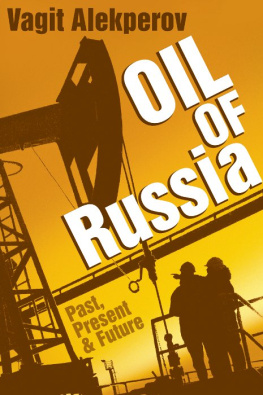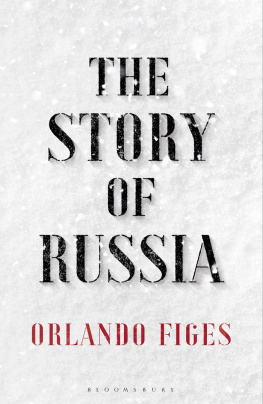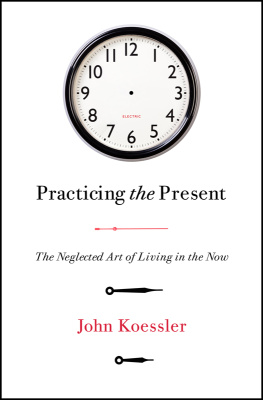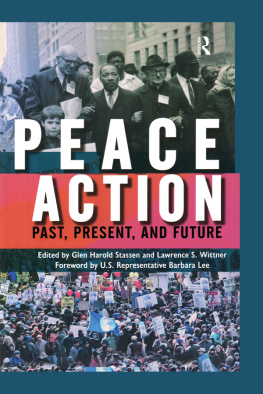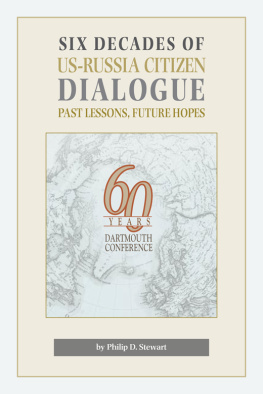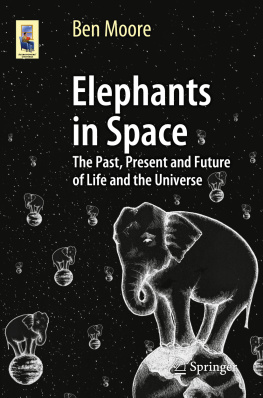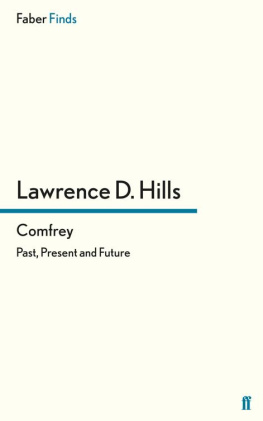Alekperov - Oil of Russia: Past, Present & Future
Here you can read online Alekperov - Oil of Russia: Past, Present & Future full text of the book (entire story) in english for free. Download pdf and epub, get meaning, cover and reviews about this ebook. genre: Romance novel. Description of the work, (preface) as well as reviews are available. Best literature library LitArk.com created for fans of good reading and offers a wide selection of genres:
Romance novel
Science fiction
Adventure
Detective
Science
History
Home and family
Prose
Art
Politics
Computer
Non-fiction
Religion
Business
Children
Humor
Choose a favorite category and find really read worthwhile books. Enjoy immersion in the world of imagination, feel the emotions of the characters or learn something new for yourself, make an fascinating discovery.
- Book:Oil of Russia: Past, Present & Future
- Author:
- Genre:
- Rating:3 / 5
- Favourites:Add to favourites
- Your mark:
- 60
- 1
- 2
- 3
- 4
- 5
Oil of Russia: Past, Present & Future: summary, description and annotation
We offer to read an annotation, description, summary or preface (depends on what the author of the book "Oil of Russia: Past, Present & Future" wrote himself). If you haven't found the necessary information about the book — write in the comments, we will try to find it.
Oil of Russia: Past, Present & Future — read online for free the complete book (whole text) full work
Below is the text of the book, divided by pages. System saving the place of the last page read, allows you to conveniently read the book "Oil of Russia: Past, Present & Future" online for free, without having to search again every time where you left off. Put a bookmark, and you can go to the page where you finished reading at any time.
Font size:
Interval:
Bookmark:

East View Press
Minneapolis
Russian Vertically Integrated Oil Companies
Russian Oil: A Top Managers View
The Eve of the Petroleum Era
Soviet Unions Oil
New Russias Oil
Copyright 2011 by Vagit Alekperov
All rights reserved.
Translated from the Russian by
Paul B. Gallagher and Thomas D. Hedden
Assisted by Todd Jackson
pbg translations, inc.
Edited by Alex Lane and Laurence Bogoslaw
Managing Editor Ana K. Niedermaier
Cover Design by OROPACK Design Bureau
Library of Congress Cataloging-in-Publication Data
Alekperov, V. IU. (Vagit IUsufovich), 1950
Oil of Russia: past, present, and future / Vagit Alekperov; translated from the Russian by Paul B. Gallagher and Thomas D. Hedden. 1st ed.
p. cm.
Includes bibliographical references and index.
ISBN 978-1-879944-07-7 (hardcover)
1. Petroleum industry and trade-Russia (Federation)History. 2. Lukoil (Firm)History. I. Title.
HD9575.R82A6194 2011
338.27280947dc22
2010040119
All photographs, artwork, pictures and illustrations contained in this book have been used with the express written consent of the LUKOIL Oil Company.
Published by East View Press,
an imprint of East View Information Services, Inc.
Minneapolis
Printed in the United States of America
First Edition 2011
1 3 5 7 9 10 8 6 4 2
Vagit Alekperov needs no introduction to anyone in the oil business. As president of LUKOIL, Russias largest non-state-owned oil and gas company, he is well known for his business acumen, inexhaustible vigor, and genuine charm. Even if your life is only slightly affected by petroleum (and I am willing to bet that if you are holding this bookit is), you are probably familiar with his name.
It may be less well known that Vagit is also a member of the Russian Academy of Natural Sciences. Over the past decade, Academician Alekperov has led a team of researchers seeking to salvage the history of the Russian oil industry from the oubliette of tsarist and communist-era archives. On reflection, this distraction from the demands of business reveals itself as a wise investment. In an industry where project-planning horizons are decades long and global in scope and where quotidian acts often reach historic proportions, a keen appreciation of history is not just a reward but a prerequisite for success. We can be grateful that Vagit is sharing his insights into a subject that has long suffered from regrettable obscurity and lack of access.
Russias oil industry has always been important to Russia and to the global energy supply system as a whole. Its image, however, has so often been distorted by a combination of ideology, fear, and romance that many promising commercial opportunities have withered or failed to materialize in the resulting atmosphere of uncertainty and mistrust. My personal and business experience in Russia has been decidedly positive. I credit this in no small part to my relationship with Vagit and his company. Thus, it is a special pleasure to see his unfiltered account of the Russian oil industry make its debut in English. I am hopeful that the understanding it fosters will strengthen and multiply constructive cooperation with our Russian partners and help promote global energy and environmental security.
Oil of Russia: Past, Present and Future is both a result and a welcome symbol of Russias increasing openness and renewed engagement in the world.
Jim Mulva
Chairman and Chief Executive Officer
ConocoPhillips
December, 2010
In the early 21st century, mankind has encountered serious global problems that pose considerable complications for the further development of civilization. Who can forget the major climate changes that produced heavy snowfalls in various European countries this past winter and brought snow even to New Zealand in October 2009? Over the past 30 years, the worlds average temperature has risen 1.1F. Meanwhile, a more arid climate has already shortened the growing season in the Sahel region of sub-Saharan Africa, fueling ongoing armed conflicts in a region already suffering from a shortage of water and foodstuffs. And in Central America, stronger hurricanes threaten to seriously undermine the economy of developing countries and destabilize the political system, thereby encouraging a new flow of migrants.
Here we should also include the visible consequences of biosphere degradation: in the last two centuries, the world has lost two-thirds of its forests, two-thirds of its arable land, and seen its ocean, sea, and river bioresources seriously depleted. The Earths biodiversity is threatened 110 vertebrate species have already completely disappeared. Mankind is beginning to experience a shortage of drinking water and nearly 1.2 billion of the Earths population now suffer from a shortage of water resources, while 2.6 billion have no access to elementary sewage systems.
These alarming trends are precisely why the Millennium Declaration, adopted by the UN in 2000 and approved by all its members, identified the assurance of sustainable environmental development and the formation of a global development partnership as its principal goals.
At present, the ever-faster globalization of the world economy due to objective factors in the development of modern civilization requires further and further extension of the international division of labor and economic specialization at the national level, acceleration of scientific and technical progress, computerization, enhancement of the roles of financing and services in all commercial fields (especially in transportation and communications), and reduction in the economic distance between countries to bring them closer together and unite them. Literally before the eyes of a single generation, enormous new regions in the former stagnant periphery and areas of human activity have been introduced into the world economy. The Internet and mobile telephone communications have destroyed the mental boundaries between countries, bringing hundreds of millions of people of various nationalities and faiths together to share common human values and scientific advances. It is this very rapprochement and unification of countries and ethnic groups that reveals globalizations most important economic essence: globalization as a worldwide process of growing economic interdependence among all the worlds countries, with a tendency toward a gradual transition toward the development of those countries based on a higher principle, that of economic complementarity.
Yet, despite the benefits of a more interconnected world economy, this new era of globalization and development is not without its own consequences. In particular, the current state of the worlds energy industry and the prospects for its development give great cause for concern. World energy consumption is growing rapidly, by an average of 20% per decade over the past 30 years. Added to this is the fact that the first eight years of the new century were marked by both a deepening of old factors and the appearance of many new ones and trends in the world energy markets and in international relations, primarily on the oil and gas issue, which require thorough analysis and day-to-day observation for the adoption of decisions at the international level.
An additional cause for serious concern came in 2009 from the results of the first comprehensive study by the World Energy Agency (WEA); this study verified the status of more than 800 oil fields in various parts of the world, which account for some 75% of the worlds total black gold reserves. The study found that most of these oil fields had already passed their production peak and production was now falling nearly twice as fast as forecast just two years before. According to WEA data, world oil production is declining 6.7% annually, while a similar study in 2007 showed a decline of only 3.7% annually.
Font size:
Interval:
Bookmark:
Similar books «Oil of Russia: Past, Present & Future»
Look at similar books to Oil of Russia: Past, Present & Future. We have selected literature similar in name and meaning in the hope of providing readers with more options to find new, interesting, not yet read works.
Discussion, reviews of the book Oil of Russia: Past, Present & Future and just readers' own opinions. Leave your comments, write what you think about the work, its meaning or the main characters. Specify what exactly you liked and what you didn't like, and why you think so.

